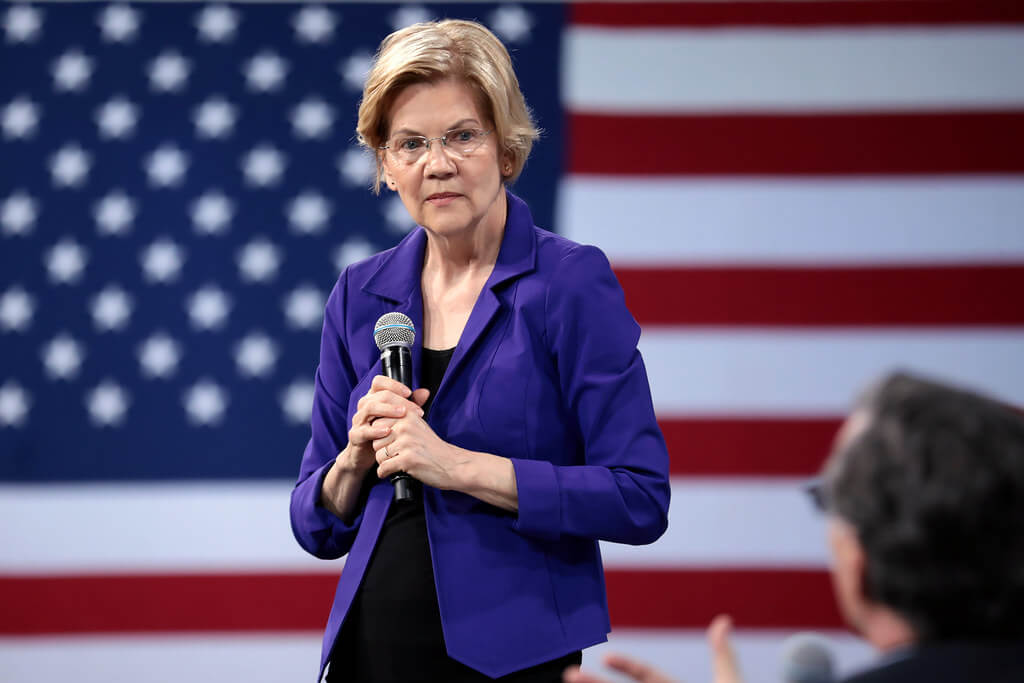Ripple Supports John Deaton’s Senate Bid Against Elizabeth Warren
17.07.2024 21:00 1 min. read Alexander Stefanov
John Deaton, known for his advocacy in the crypto community and his legal battles involving Ripple, is now backed by Ripple itself in his bid for the Massachusetts Republican senatorial primary.
Deaton, a prominent figure in mesothelioma law, has gained attention for his defense of Ripple and his establishment of CryptoLaw, a firm specializing in cryptocurrency legal issues.
Ripple contributed $1 million to the Commonwealth Unity Fund supporting Deaton’s campaign, with lawyer James Murphy also contributing $50,000.
This political action committee (PAC) has already directed $30,000 towards opposing Senator Elizabeth Warren, a noted critic of cryptocurrencies.
Deaton’s advocacy extends beyond his legal practice, as seen in his support for Coinbase against the SEC’s Howey test interpretation. He argues that the SEC’s blanket classification of digital tokens as securities undermines the nuanced nature of blockchain transactions.
In the primary race, Deaton faces competition from blockchain entrepreneur Ian Cain and engineer Robert Antonellis, among others, while Senator Cynthia Lummis supports Cain’s candidacy. Despite the contenders, Warren remains a formidable candidate based on current polling data.
-
1
UK Regulators Unveil PISCES – A New Era for Private Share Trading
11.06.2025 15:00 2 min. read -
2
Trump Turns 79 With Billions in Crypto and a $45M Parade
14.06.2025 22:00 2 min. read -
3
Polygon Breaks from Decentralization as Sandeep Nailwal Assumes Full Control
11.06.2025 20:00 2 min. read -
4
Nvidia CEO Urges UK to Invest in AI Infrastructure or Risk Falling Behind
10.06.2025 9:00 1 min. read -
5
KuCoin Plants Its Flag in Bangkok With a Licensed Thai Exchange
14.06.2025 13:00 1 min. read
History Shows War Panic Selling Hurts Crypto Traders
Geopolitical conflict rattles markets, but history shows panic selling crypto in response is usually the wrong move.
At Least Five Law Firms Target Former Strategy Over Misleading BTC Risk Disclosures
Bitcoin-focused investment firm Strategy Inc. (formerly MicroStrategy) is facing mounting legal pressure as at least five law firms have filed class-action lawsuits over the company’s $6 billion in unrealized Bitcoin losses.
SoFi Returns to Crypto with Trading, Staking, and Blockchain Transfers
Digital banking platform SoFi Technologies is making a strong return to the cryptocurrency space, relaunching its crypto trading and blockchain services after stepping away from the sector in late 2023.
Chinese Tech Firms Turn to Crypto for Treasury Diversification
Digital assets are gaining ground in corporate finance strategies, as more publicly traded companies embrace cryptocurrencies for treasury diversification.
-
1
UK Regulators Unveil PISCES – A New Era for Private Share Trading
11.06.2025 15:00 2 min. read -
2
Trump Turns 79 With Billions in Crypto and a $45M Parade
14.06.2025 22:00 2 min. read -
3
Polygon Breaks from Decentralization as Sandeep Nailwal Assumes Full Control
11.06.2025 20:00 2 min. read -
4
Nvidia CEO Urges UK to Invest in AI Infrastructure or Risk Falling Behind
10.06.2025 9:00 1 min. read -
5
KuCoin Plants Its Flag in Bangkok With a Licensed Thai Exchange
14.06.2025 13:00 1 min. read


